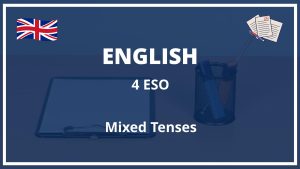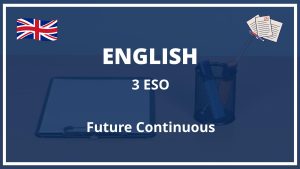
Abrir Ejercicios Conditional 3 ESO | Exercices
Conditional Sentences We can use conditional sentences to talk about things that might happen, or could happen, or did happen. In English, there are three different types of conditional sentence. Type 1: Possible Condition If I have enough money, I will buy a new car. Type 2: Impossible or Improbable Condition If I won the lottery, I would buy a new house. Type 3: Past Condition If I had known she was coming, I would have cleaned the house. The type of conditional sentence dictates which verb tense we use in the main clause and which verb tense we use in the if clause. Type 1 conditional sentence If I have enough money, I will buy a new car. The type 1 conditional is used to talk about real and possible conditions. The condition is possible and the result will happen in the future. We use the present tense in the if clause and will + infinitive in the main clause: If it rains tomorrow, we will go to the beach. If he finishes work early, he will come home. If you study hard, you will pass your exams. If they offer me the job, I will take it. If she arrives late, she will miss her flight. Type 2 conditional sentence If I won the lottery, I would buy a new house. The type 2 conditional is used to talk about unreal and improbable conditions. The condition is impossible or very unlikely and the result is also unreal. We use the past simple in the if clause and would + infinitive in the main clause: If I won the lottery, I would buy a new house. If he arrived now, we would go to the party. If she studied hard, she would pass her exams. If they offered me the job, I would take it. Type 3 conditional sentence If I had known she was coming, I would have cleaned the house. The type 3 conditional is used to talk about unreal conditions in the past. The condition is impossible because it refers to a time that has already passed. We use the past perfect in the if clause and would have + past participle in the main clause: If I had known she was coming, I would have cleaned the house. If he had arrived early, we would have gone to the party. If she had studied hard, she would have passed her exams. If they had offered me the job, I would have taken it.
Ejercicios Resueltos Conditional Ingles 3 Eso
Exercises Ingles 3 Eso
Resuelto el ejercicio 3 de la página web:
Ejercicio 3
Complete the following sentences with the correct form of the verbs in brackets.
1. If I (be) you, I (not go) out tonight.
2. Unless it (stop) raining, we (not be able to) go out.
3. I (come) to see you tomorrow if I (have) time.
4. I (do) my homework now if I (finish) my breakfast.
5. Unless you (be) careful, you (have an accident).
6. I (not come) to the party if I (not be) invited.
7. I (not go) out with you unless you (change) your attitude.
8. You (be able to) play football if you (practice) more.
9. Unless he (arrive) soon, we (not start) the meeting.
10. If I (be) you, I (not eat) so much.
Answers:
1. If I were you, I wouldn’t go out tonight.
2. Unless it stops raining, we won’t be able to go out.
3. I’ll come to see you tomorrow if I have time.
4. I’ll do my homework now if I finish my breakfast.
5. Unless you are careful, you will have an accident.
6. I won’t come to the party if I’m not invited.
7. I won’t go out with you unless you change your attitude.
8. You’ll be able to play football if you practice more.
9. Unless he arrives soon, we won’t start the meeting.
10. If I were you, I wouldn’t eat so much.








